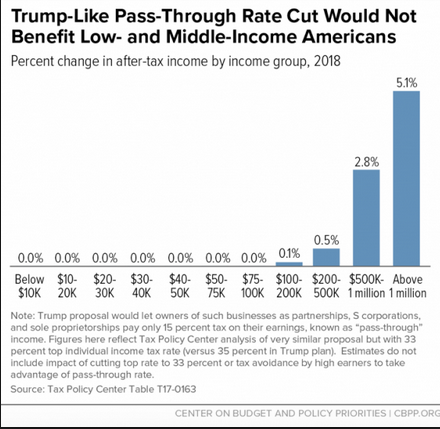WASHINGTON — The tax plan that the Trump administration outlined on Wednesday is a potentially huge windfall for the wealthiest Americans. It would not directly benefit the bottom third of the population. As for the middle class, the benefits appear to be modest.
The administration and its congressional allies are proposing to sharply reduce taxation of business income, primarily benefiting the small share of the population that owns the vast majority of corporate equity. President Trump said on Wednesday that the cuts would increase investment and spur growth, creating broader prosperity. But experts say the upside is limited, not least because the economy is already expanding.
The plan would also benefit Mr. Trump and other affluent Americans by eliminating the estate tax, which affects just a few thousand uber-wealthy families each year, and the alternative minimum tax, a safety net designed to prevent tax avoidance.
The precise impact on Mr. Trump cannot be ascertained because the president refuses to release his tax returns, but the few snippets of returns that have become public show one thing clearly: The alternative minimum tax has been unkind to Mr. Trump. In 2005, it forced him to pay $31 million in additional taxes.




